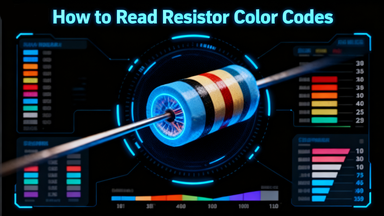How to Choose an Uninterruptible Power Supply (UPS): Master the Art of Purchasing Electronic Components in Three Steps!
Many devices that require 24-hour continuous operation need to be equipped with an uninterruptible power supply (UPS). Institutions involved in climate monitoring or water quality testing often outfit their monitoring instruments with such power supplies. Many companies are unsure of how to choose the right UPS, but by doing some research, the selection can be accomplished in three steps, thereby improving the efficiency and accuracy of purchasing electronic components. Let’s use the uninterruptible power supply as an example to discuss the selection methods.
Pay Attention to Parameter Types
Before purchasing electronic components, we must understand the basic parameter types related to these components. For uninterruptible powersupplies (UPS), the first consideration is whether it is single-phase or three-phase. When selecting a UPS, we can look at the voltage range or KVA rating. In most cases, configurations with a load of 20KVA or less use single-phase power because it offers greater stability, while higher loads require three-phase power. When choosing a three-phase power source, it is important to note whether it is three-in-three-out or three-in-single-out; the latter can also utilize a single-phase power supply.
Reference Budget to Confirm UPS Capacity
When selecting an uninterruptible power supply, capacity should not be overlooked, as it is inherently linked to price, so it is prudent to consider both simultaneously. If the power supply is used downstream of the load, higher power consumption is expected, thus a UPS with a larger capacity may be needed. However, specific everyday usage should also be considered. For instance, the uninterruptible power supply for monitoring equipment mentioned earlier does not require a large capacity, since many of these devices only activate the UPS in the event of a power outage.
Select Battery Options Based on Needs
To meet different usage scenarios, there are now many options available for uninterruptible power supplies. For example, if we need to purchase a more compact UPS, lithium batteries are preferable over lead-acid batteries due to their smaller size without sacrificing capacity. Additionally, specialized flywheel UPS systems are frequently used to meet specific needs.
We have just outlined the steps for purchasing electronic components using uninterruptible power supplies as an example. First, we should understand its basic parameters and types, then proceed with selection based on budget and usage requirements. Leveraging Unikeycan also aid in the selection





















